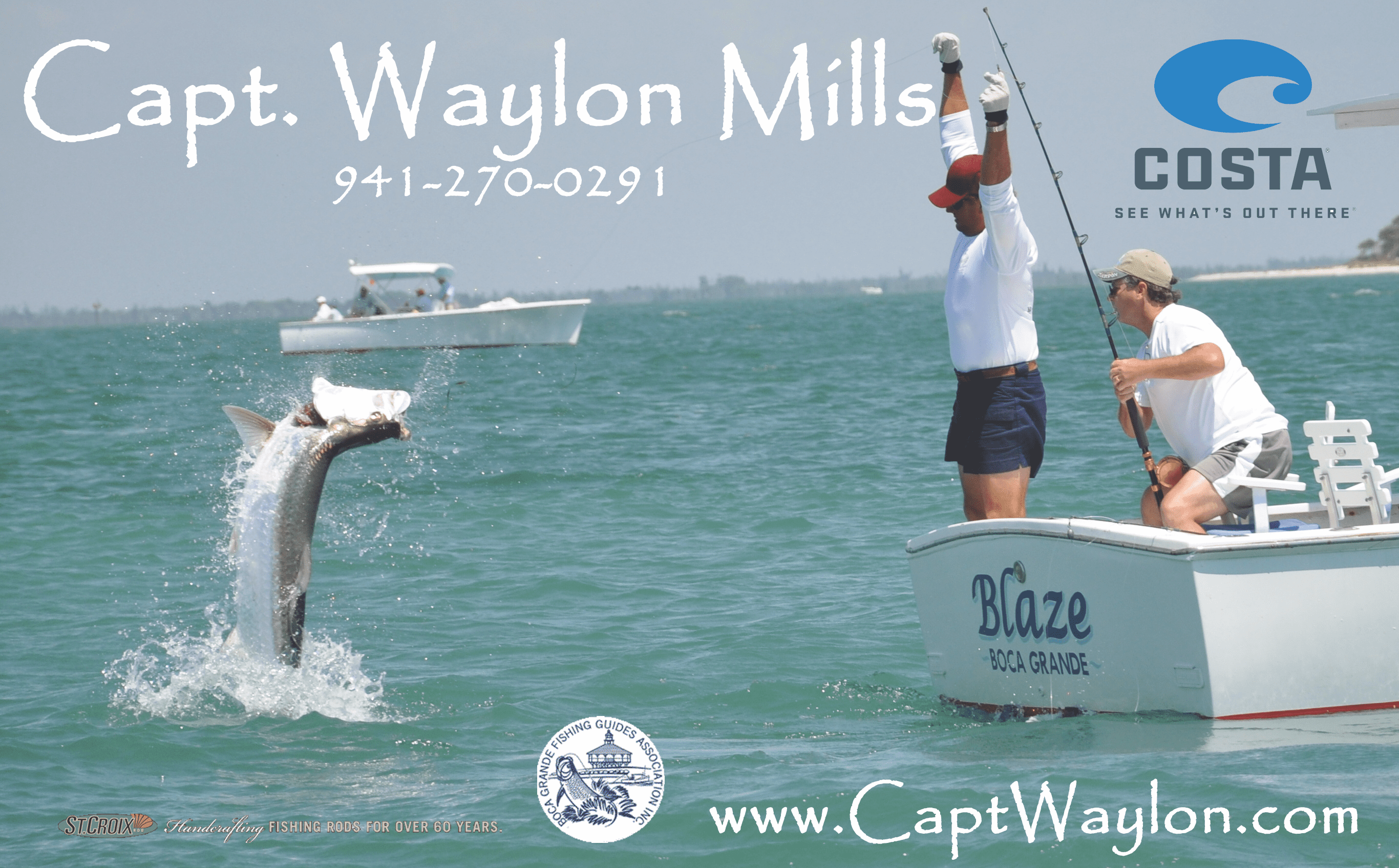EDITORIAL: We are all ‘somebody’ in the history of Gasparilla Island … for better, or for worse

There’s so much that has changed in our community in the last year or two. It’s difficult sometimes to wrap our minds around what has happened just since last September, much less the other changes that have taken place. Some of them were fast and furious, like Hurricane Ian, but others have been a slow, shapeshift that is hard to realize until it is already over and done.
Just this week we mourn the loss of two islanders, including one of Boca Grande’s greatest historians: Capt. Robert Wayne Johnson. He was the son of Capt. Cary Johnson, the nephew of Kingsmore Johnson Sr., the cousin of Capt. Kingsmore Johnson Jr., the grandson of Capt. Iredell Johnson and the great-nephew of Capt. William Johnson. All were pilot boat captains, leading the giant ships that came to safe dockage in our southern port. The family came in the late 1800s and established themselves at the right time and place, which means that our island has been home to pilot boat captains for 135 years.
Robert was a hard guy to figure out sometimes, but his love for this island shone through with just about everything he did. He knew my passion for history as well, which is why I believe he schooled me so harshly on every little detail that wasn’t perfect in things we published. I realized then, and now, that he knew I wanted it to be correct. He wanted me to remember when I was wrong, and that was how he did it. And it worked.
I remember maybe only a year or two after I came to the Beacon, maybe around 2009, when his black car rounded the corner and pulled up next to me. Inside were Robert and Roberta, his wife, and they asked me to get in and take a ride with them. I had no pen, no notepad, I scarcely remember if I had a phone with me that would even record audio.
For almost two hours we drove down every street in the village, slowing or stopping at every old home while the couple reminisced about every person that had lived in each house, throughout history. They talked about the people, the families, those who married from one family to another and started their own. They told me about the streets where the black island residents lived, the juke joints, the movie theater … there was so much.
While I didn’t get a chance to write down every detail, not having my “reporter hat” on gave me a chance to soak it all in on a personal level. After all, this was the island I had been coming to since third grade; this was the place I always wanted to come to. The Gulf always seemed a little prettier, the beach a little brighter, the flowers a little more brilliant and the people always a bit nicer than anywhere else.
The history of this island speaks to me so strongly, just as it did with Robert. He was blessed to live here his whole life, and to die here, in the old Quarantine House that stands along Gulf Boulevard on Belcher Road. I wonder how much time he spent on the widow’s walk atop the house, looking out toward the Pass and to where Port Boca Grande used to be, smelling the salt air and looking at the ghosts of ships that only he could see.
When you look up information on pilot boat captains today, you often see mentions of cruise ships being led into port. Apparently now, the pilot boat captains only offer advice to the captains of those ships: They do not bring the ships in themselves. But that was not the case back in the day, when the old steamers and sailing ships would radio in from the mouth of the channel, waiting for the pilot boat to come out. The pilot boat captain would climb “Jacob’s Ladder,” a type of device that would allow them to climb up to the captain’s steering cabin. They would take the wheel with an expert hand and do what the truck drivers at Hudson’s Grocery do when they back into that narrow little driveway … except pilot boat captains had a 70-foot vessel or larger to expertly dock.
Robert Johnson never stopped being a pilot boat captain, even though it had been years since he set foot on such a boat when he died, and it was the same with Cary Johnson. Instead of guiding the vessels to safe port and dockage, they guided us through the waters of the island’s history which they knew so well. They made sure it was not forgotten by those who cared to listen and learn.
These great men who made a living on the water will not be forgotten by many of us. When you look in the eyes of men like Capt. Dumplin’ Wheeler, Capt. Lamar Joiner Sr., Milton Bell and, of course, Robert Johnson, what you are looking at are men who are brethren to the water. It’s in their very blood, their bones, their brains and their hearts. They are one with big water and love it, fear it and respect it. They told us in early spring of this year that the inland water temperatures were far too high, meaning it would be a hot summer and, possibly, another rough hurricane season. They can simply look at the fish and know a fair amount about whether our water is healthy or tainted. They can smell the wind and tell you about what time it might be changing.
So much has changed. So many people come here for the wrong reasons, it seems. The privilege of living on this half-mile-wide sandbar along the Gulf of Mexico should be revered, but for so many who know so little, it means nothing more than a second or third vacation home. Do they wake up in the morning and listen to the Gulf’s roar and know what it means? Do they watch the water channel so strongly in certain spots, during certain times of the day, and understand the message the water is sending? Do they feel that tickle in their chest around 2 or 3 p.m. each day and know the wind is switching?
Most people don’t anymore. This isn’t a village that is about living on God’s water anymore. It’s about cocktail parties and attending talks by brilliant statesmen, it’s about private parties and big white tents for weddings with 300 in attendance. It’s about having more money than God … not talking to God or, better yet, listening to Him. Or sitting in silence with Him, which is quite often the best there is when you’re on the Gulf of Mexico and the breeze is just right at sunset. It’s not about people living as a community, it’s about people who come here and expect the community to serve them. And that is what Robert Johnson really didn’t like at all.
When he was in his 80s, he allegedly went out in the dead of night to stage a protest on a group of rocks that blocked The Promenade, a pathway between 1st and 4th Streets where residents would convene and wander after dinner in the early part of the 1900s. It used to be a grand, wide path to accommodate women with bustles and hoopskirts, men with their cigars or pipes and, occasionally, a dog or two. Now it is weedy, impassable in many spots and disrespected by those who believe that they own the house, the grass, the beach and the water. A covenant made well more than 100 years ago is broken, simply because the new residents don’t understand what this place is about.
Robert Johnson, you made such a huge difference in this place and what we know about it.
And to Nelson Thomas, the second person we lost this past week: You, your love of your family and love of this island will not be forgotten. You were somebody here, and so many loved you.
Instead of raising a glass or sending out a lantern skyward for either of these men, I hope those who mourn them just go down to the water and sit. And listen. Smell the air. Remember them as you feel the Gulf breeze … and remember what this island used to be about. And what it is still about for some of us.
Sunset and evening star,
And one clear call for me!
And may there be no moaning of the bar,
When I put out to sea,
But such a tide as moving seems asleep,
Too full for sound and foam,
When that which drew from out the boundless deep
Turns again home.
Twilight and evening bell,
And after that the dark!
And may there be no sadness of farewell,
When I embark;
For though from out our bourne of Time and Place
The flood may bear me far,
I hope to see my Pilot face to face
When I have crossed the bar.
– Lord Alfred Tennyson’s “Crossing the Bar”
Marcy Shortuse is the editor of the Boca Beacon. She can be reached at
mshortuse@bocabeacon.com.





